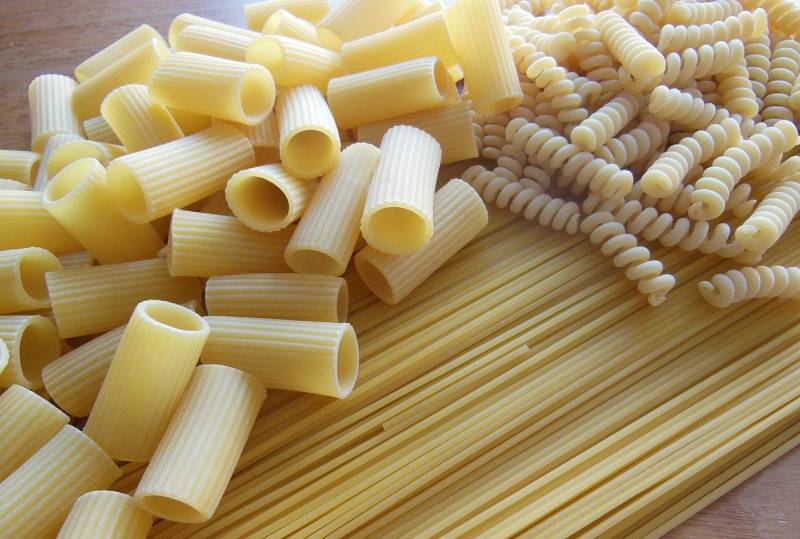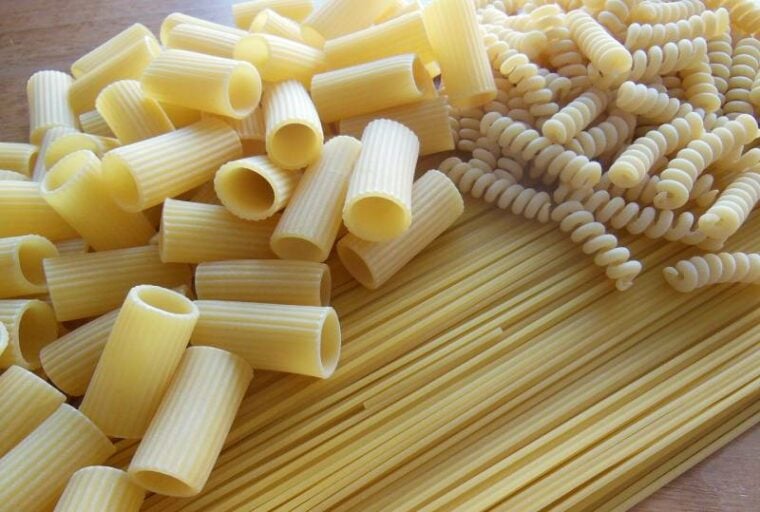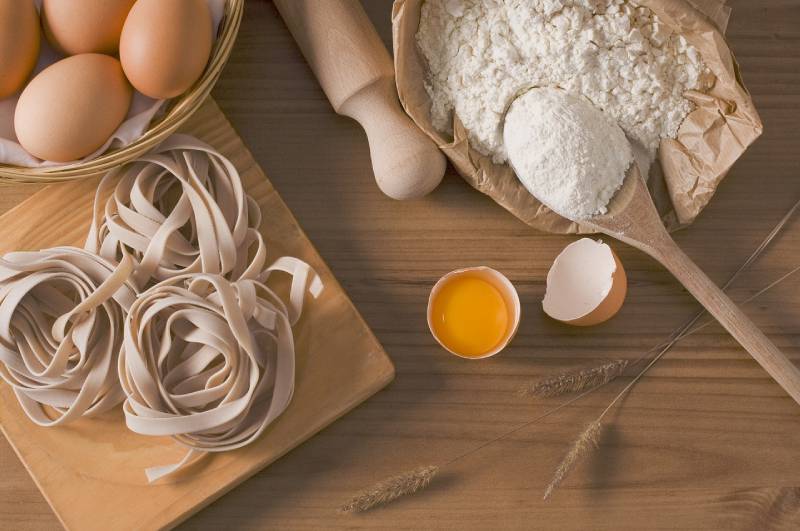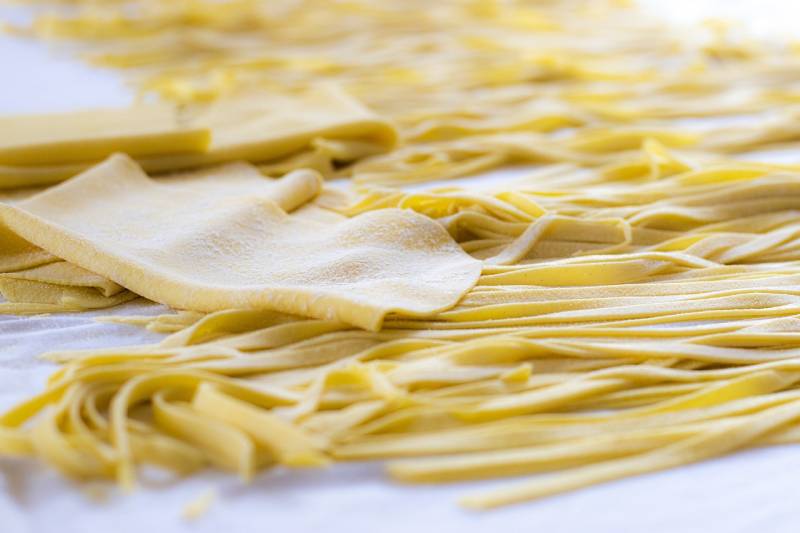- December 8, 2023
Can Hamsters Eat Pasta? Vet Approved Facts & FAQ



The information is current and up-to-date in accordance with the latest veterinarian research.
Offering your hamster a piece of pasta can be a great treat because most hamsters adore the taste, and it won’t harm their health. Simply put, hamsters can eat pasta occastionally. Read more about this topic in the article below and stay safe by offering pasta to your hamster only in moderation.

What is Pasta Made from?
Pasta is one food that we can say is universally adored across the world. It comes in many shapes, sizes, colors, and flavors. While some people might enjoy making homemade pasta, the most common source is store-bought, commercially manufactured pasta. It is made from milled wheat, eggs, and water. Once the ingredients are mixed and cut into desired shapes, they are left to dry out, so the water content evaporates, making pasta easy to package with a long shelf life.
While most people might believe that pasta is only a filler food that makes us gain weight and has no real benefits, some properties make it relatively beneficial. Regular dried pasta, made from refined flour—semolina—has higher protein levels than other types of pasta. This type of pasta is digested slower than other refined carbohydrates, gradually releasing blood sugar into your body. Also, pasta is a somewhat decent source of protein, supplying 6 to 7 grams per cooked cup.
Nutritional Value of Pasta per 100 g
| Energy: | 168 kcal / 701 kJ |
| Water: | 87.8 g |
| Protein: | 6.59 g |
| Total Fat: | 1.34 g |
| Carbohydrates: | 31.9 g |
| Calcium: | 7.68 g |
| Iron: | 1.46 g |
| Magnesium: | 23 mg |
| Phosporus: | 80.6 mg |
| Potassium: | 30.7 mg |
| Sodium: | 7.68 mg |

Can Hamsters Eat Pasta?
The excellent news for hamster owners is that pasta is an entirely safe snack to offer them. Pasta has no real benefits on hamsters’ health, but it isn’t harmful or toxic. However, it should be cooked prior to offering. Hamsters need more protein, with fewer carbohydrates, and pasta has plenty of carbs, so it should only be offered in moderation and not as a regular part of their diet. Pasta also contains gluten, which might cause gastrointestinal upset for your hamster, but as long as you stay moderate and don’t offer too much, it should be fine.
How to Feed Pasta to Your Hamster
When feeding pasta to your hamster for the first time, it is crucial to prepare it properly. This includes offering pasta without adding oils or salts. Make sure the past you have is free of any additives. Offer a small piece of pasta to your hamster first to see if they like it. If they eat a piece of pasta, monitor their behavior and health for 24 hours. You can continue feeding your hamster pasta safely occasionally if there are no side effects. However, if your hamster suddenly gets diarrhea, loses appetite, or starts vomiting, stop feeding them pasta as they might be allergic or sensitive to some ingredients.
Ideal Hamster Diet
If you are a confused hamster parent often wondering what the ideal nutrition for your pet is, you are not the only one. There are many sources of information concerning the perfect hamster diet; however, it is relatively simple. A hamster’s diet should be as similar as possible to their natural diets in the wild, and so are best based around hamster pellets and fresh vegetables. Feeding your hamster pellets is best because all the necessary nutrients are mixed into one form, not letting your hamster be a picky eater.
Every pellet-based hamster diet needs to have:
- 15% to 25% protein
- 4% to 5% fat
- 5% fiber
- 35% and 40% carbohydrates
It is best to work closely with your veterinarian to create a personalized plan tailored to your hamster; however, you can expect their diets to be based around pallets, fruits, vegetables, and occasional snacks in the form of insects like mealworms. There are certain human foods that hamsters can eat safely:


Final Thoughts
Being a diligent and devoted hamster parent includes reading all about the safety of particular food for them. When it comes to pasta, fortunately, it is entirely safe for hamsters to consume, as long as done only on occasion and in small amounts. While pasta doesn’t carry any significant health benefits, nutrients, or vitamins, it can be a potential source of protein.
However, it is essential to note that pasta can only be offered as an occasional snack to your hamsters and should never replace their regular meals.
Featured Image Credit: Bella RaKo, Pixabay
Tags
What do you think?
Related Articles

New Puppy Checklist: Gear You’ll Need for Your New Dog
Getting a new puppy is really exciting, but before you welcome them home, it’s important to prepare your space for them. Since puppies need a

How Big Do Mini Poodles Get? Vet Reviewed Average Weight & Growth Chart – Dogster
The information is current and up-to-date in accordance with the latest veterinarian research. Learn more » When you buy a Miniature Poodle, you might not

Can Police Dogs Smell Nicotine? Vet Verified Facts & Info – Dogster
The information is current and up-to-date in accordance with the latest veterinarian research. Learn more » While cigarette sales have been declining steadily for decades,

How Old Is 5 in Dog Years? Vet-Approved Guide to Each Size of Dog – Dogster
The information is current and up-to-date in accordance with the latest veterinarian research. Learn more » A common method for calculating a dog’s age is

